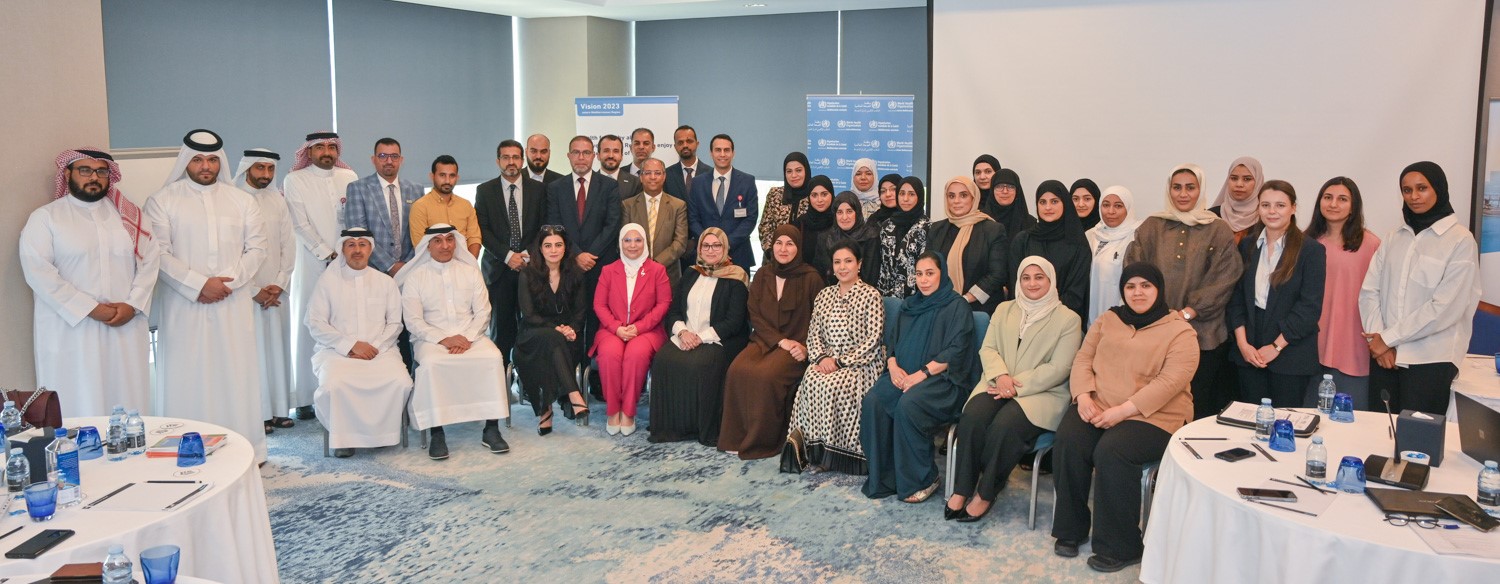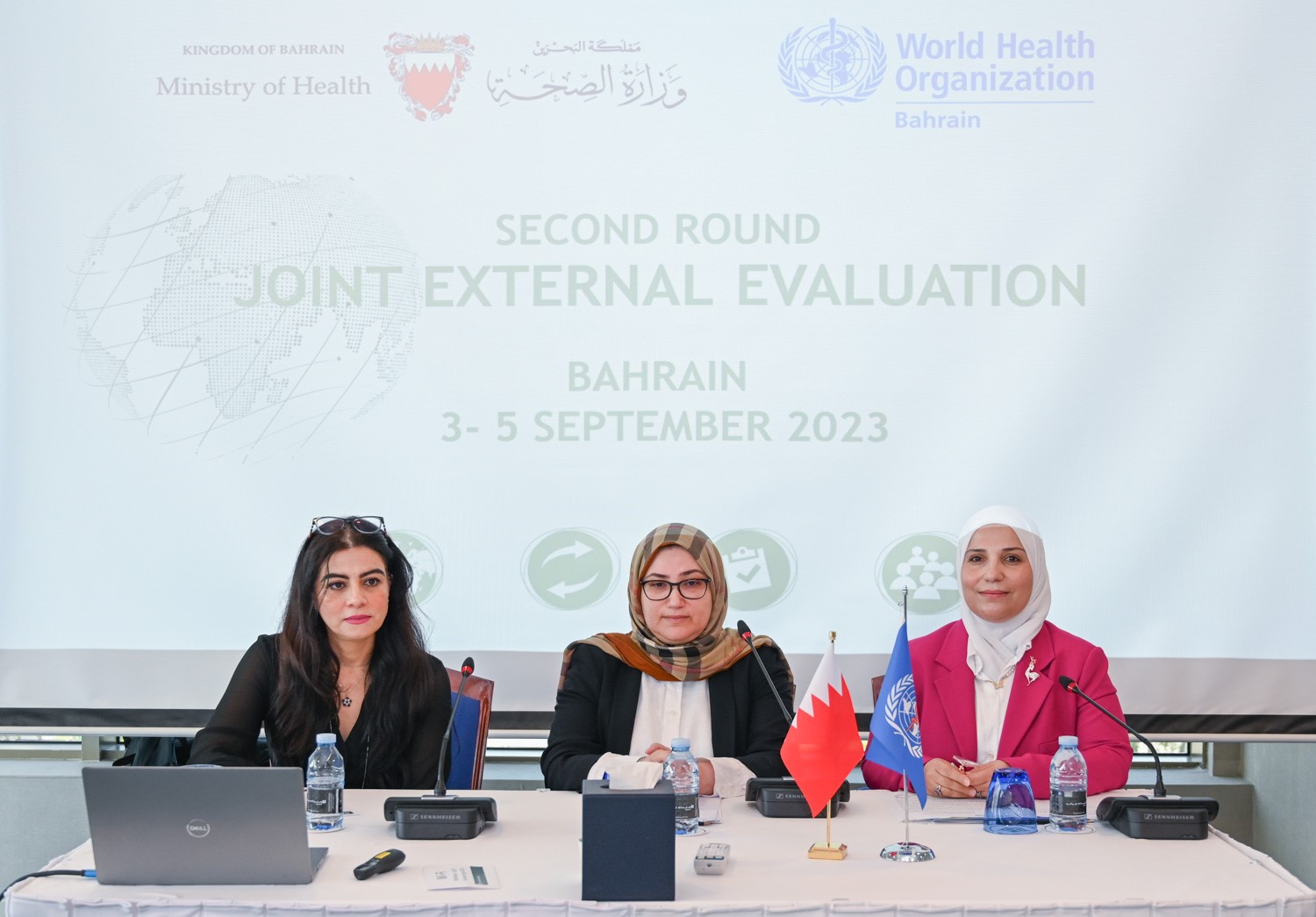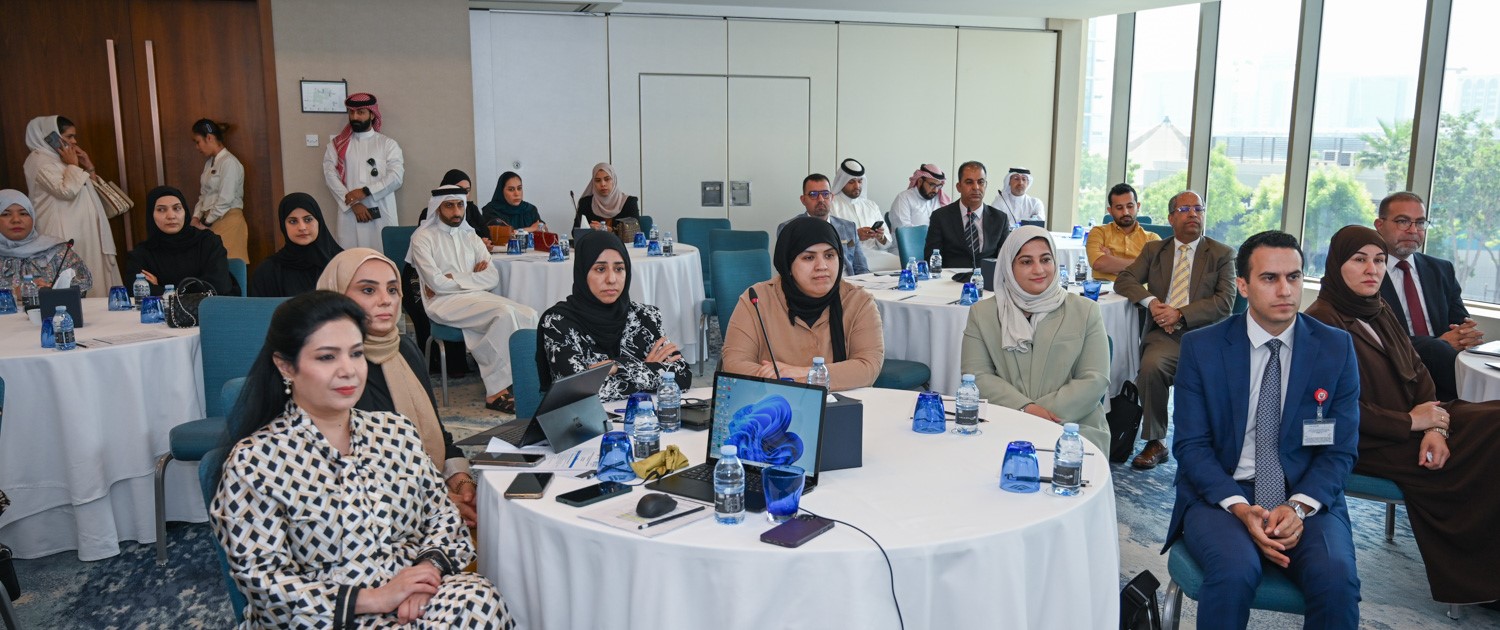4 September 2023 – Led by the Ministry of Health in Bahrain, in collaboration with the World Health Organization, a 3-day workshop on the first phase of self-evaluation of the second round of the joint external evaluation (JEE), was held in Manama, Bahrain, on 3–5 September 2023.
Under the International Health Regulations (IHR 2005), WHO Member States are required to develop their capacity to rapidly detect, assess, notify, and respond to unusual health events of potential international concern. The IHR Monitoring and Evaluation Framework, developed by the WHO Secretariat, consists of 4 complementary components: one mandatory – the States Parties Annual Report, and 3 voluntary – JEE, after action reviews, and simulation exercises (SimEx).
The JEE is a voluntary, collaborative process to assess a country’s capacity in preventing, preparing, and rapidly responding to public health threats whether occurring naturally or due to deliberate or accidental events. It helps countries identify the most critical gaps across 19 technical areas of IHR core capacities to prioritize opportunities for enhanced pandemic preparedness, prevention, and response.
The JEE workshop brought together over 35 multisectoral experts from the Ministries of Health, Foreign Affairs, Industry and Commerce, Municipalities and Agriculture, Interior, Transportation and Telecommunication, primary health care centres, government hospitals, as well as the National Health Regulatory Authority, National Oil and Gas Authority, and Bahrain Airport Services to represent the 19 technical areas of the IHR core capacities.
 A group photo of the participants on the first day of the Second Round of the JEE, Manama, Bahrain, 3 September 2023, Photo Credit: Ministry of Health
A group photo of the participants on the first day of the Second Round of the JEE, Manama, Bahrain, 3 September 2023, Photo Credit: Ministry of Health
The JEE workshop was inaugurated by HE Dr Ejlal Al-Alawi, Assistant Undersecretary for Public Health, Ministry of Health, followed by introductory addresses by Dr Tasnim Atatrah, WHO Representative, Bahrain, and Dr Dalia Samhouri, Regional Manager, Emergency Preparedness and International Health Regulations, WHO Regional Office for the Eastern Mediterranean.
 From left to right: Dr Dalia Samhouri, Regional Manager, Emergency Preparedness and IHR, WHO Regional Office; HE Dr Ejlal Al-Alawi, Assistant Undersecretary for Public Health, Ministry of Health; and Dr Tasnim Atatrah, WHO Representative, Bahrain, during the inauguration of the Second Round of the JEE, Manama, Bahrain, 3 September 2023, Credit: Ministry of Health
From left to right: Dr Dalia Samhouri, Regional Manager, Emergency Preparedness and IHR, WHO Regional Office; HE Dr Ejlal Al-Alawi, Assistant Undersecretary for Public Health, Ministry of Health; and Dr Tasnim Atatrah, WHO Representative, Bahrain, during the inauguration of the Second Round of the JEE, Manama, Bahrain, 3 September 2023, Credit: Ministry of Health
The JEE workshop was inaugurated by HE Dr Ejlal Al-Alawi, Assistant Undersecretary for Public Health, Ministry of Health, followed by introductory addresses by Dr Tasnim Atatrah, WHO Representative, Bahrain, and Dr Dalia Samhouri, Regional Manager, Emergency Preparedness and International Health Regulations, WHO Regional Office for the Eastern Mediterranean.
"The aim of the workshop is to evaluate the core capacities available for implementing the requirements of IHR in Bahrain. During the workshop, WHO will undertake a comprehensive assessment of the multisectoral experts involved in implementing IHR. By participating in this assessment for the second time, the first being in 2016,Bahrain has demonstrated its commitment to strengthening its health systems and contributing to creating a safer and healthier world,” stated HE Dr Ejlal Al-Alawi, Assistant Undersecretary for Public Health, Ministry of Health.
“By completing its first round of the JEE in 2016 and initiating the voluntary second round today, Bahrain has highlighted its commitment to IHR by not only reporting on the mandatory component annually, but also by going above and beyond in the voluntary components,” stated Dr Tasnim Atatrah, WHO Representative, Bahrain.
Dr Atatrah further added that “Earlier this year, a one-of-a-kind, training of trainers SimEx multisectoral workshop was conducted to identify strengths and gaps in the country’s response to various public health emergencies. Today, the experts among you demonstrate the multisectoral responsibility required for pandemic prevention, preparedness, and response to unusual health events of potential international concern.”
The training was supported by facilitators from the WHO Regional Office.
“The second round of the joint external evaluation is considered an important step in enhancing multisectoral collaboration for health security in Bahrain. The World Health Organization supports the Bahraini Ministry of Health in completing the self-assessment phase of the second round of JEE and preparing for the external evaluation phase," said Dr Dalia Samhouri, Regional Manager, Emergency Preparedness and International Health Regulations, WHO Regional Office.
She further added, "The JEE will help to determine the existing gaps that need support in human and animal health sectors, enabling them to identify key opportunities to enhance preparedness, and rapid response to public health threats in the future."
 A group photo of the participants during a presentation facilitated by WHO EMRO on the first day of the Second Round of the JEE, Manama, Bahrain, 3 September 2023, Credit: Ministry of Health
A group photo of the participants during a presentation facilitated by WHO EMRO on the first day of the Second Round of the JEE, Manama, Bahrain, 3 September 2023, Credit: Ministry of Health
After the completion of the second phase of the JEE, priority actions and outcomes identified the update of the National Action Plan for Health Security, in order to strengthen national capacities and country preparedness for all-hazard emergencies towards achieving the WHO Triple Billion Goal where 1 billion more people are better protected from health emergencies.
Related links
- International Health Regulations
- Bahrain JEE Report (2016)
- WHO supports Bahrain in health security preparedness: training of trainers simulation exercises


